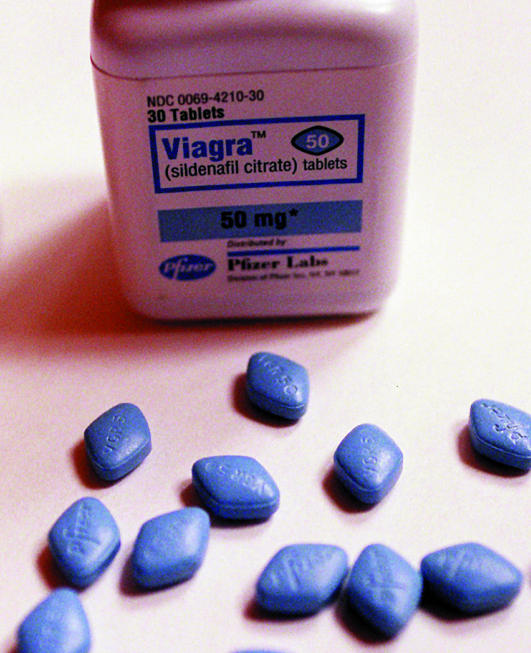The long awaited licence for sildenafil citrate (Viagra) was granted this week by the European Medicines Evaluation Agency, but British patients will not be able to get the drug on the NHS, at least for the time being.
Following the advice of the Standing Medical Advisory Committee, the Department of Health has advised doctors not to prescribe sildenafil until definitive guidance is drawn up in the next few weeks. This is the first time that the NHS has refused to fund a licensed drug with proved benefits to a large number of people. The efficacy and safety of sildenafil has already been demonstrated in trials and use in the United States.
Admitting that the decision was primarily because of cost, the health secretary, Frank Dobson, said: "Media coverage of this drug to date has created expectations that could prove a serious drain on the funds of the NHS. If this were to happen, other patients could be denied the treatment they need. I cannot allow this to happen."
He added: "The potential availability of this drug raises issues about the priority which should be given to the treatment of impotence on the NHS." He told Channel 4 News that he expected eventual "limited availability" of sildenafil.
Philip Hammond, the Conservative shadow health spokesman, said that Mr Dobson has acknowledged "what the Government has always denied--that there is rationing on the NHS." The Conservative party has called for the public to be able to have a "full and open debate about what the priorities should be."
Stephen Thornton, chief executive of the NHS Confederation, praised the government for realising that availability of sildenafil on the NHS "would have led to huge financial problems and organisational chaos for the health service." He also said that Mr Dobson was right to "issue guidance to clinicians and health service managers about how the drug should be rationed."
The Department of Health has advised health authorities "not to support the provision of sildenafil at NHS expense to patients requiring treatment for erectile dysfunction, other than in exceptional circumstances which they should require be cleared in advance for them." It is not yet clear what these exceptional circumstances would be. However, it was also emphasised that "ministers have not made any decisions relating to the nature and extent of any future availability of this drug as part of NHS services."
Because sildenafil is not a lifesaving drug, it is an easy target for rationing. The government eventually agreed to the price suggested by Pfizer of £4.84 ($7.8) for a 50 mg tablet, the normal dose. The drug costs $7.5 for an equivalent dose in the United States. The price of other impotence treatments is much higher than for sildenafil--for example, alprostadil (Caverject) costs £6.74 for a single 5 µg injection. Dr Douglas Savage, a GP in Doncaster who has an interest in impotence, described it as "crazy" that a drug without serious side effects that was substantially cheaper than other treatments was banned on the NHS.
The NHS spends about £12m annually on impotence treatments, but with the introduction of oral treatment, demand is expected to be much higher than at present. The BMA has calculated that the annual drug bill for sildenafil would exceed £1bn ($1.6bn) a year, if all of the men who might benefit were prescribed the drug. Pfizer insists that the cost of treatment is closer to £50m after five years.
Another problem is the potential misuse of sildenafil, with healthy individuals taking it to "pep up" their sex lives. Mr Dobson said: "I don't really think that the NHS should be financing people waving their potency at a disco." There is also some concern at the reported use of sildenafil with amyl nitrate ("poppers") in the homosexual community. Pfizer insists that only a very small number of tablets have reached the black market. It emphasises that sildenafil is not an aphrodisiac or performance enhancer in a normal healthy individual.
Roger Kirby, a consultant urologist at St George's Hospital in London and honorary secretary of the British Association of Urological Surgeons, was surprised that a "breakthrough" treatment was rationed, while the NHS continued to prescribe for constipation and warts. He has privately prescribed sildenafil for nearly 200 patients and found it "safe and effective." To avoid massive waiting lists, GPs, if properly educated, should be able to prescribe the drug for patients with a genuine clinical need, he said.
One of the few absolute contraindications for sildenafil is concomitant administration with organic nitrates, which can cause a severe drop in blood pressure. There have been 69 deaths associated with sildenafil reported by the Food and Drug Administration in the United States since its launch there in April (p 759, 824).
Figure .
JOHN STILLWELL/PRESS ASSOCIATION Viagra: cheaper than other treatments but not available on the NHS



